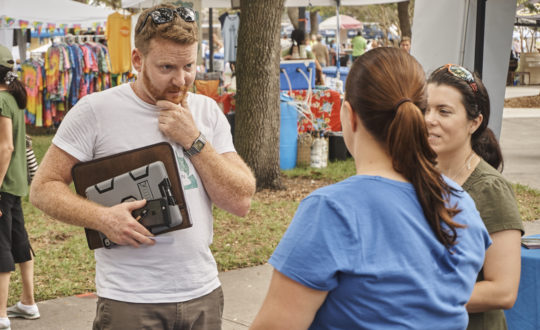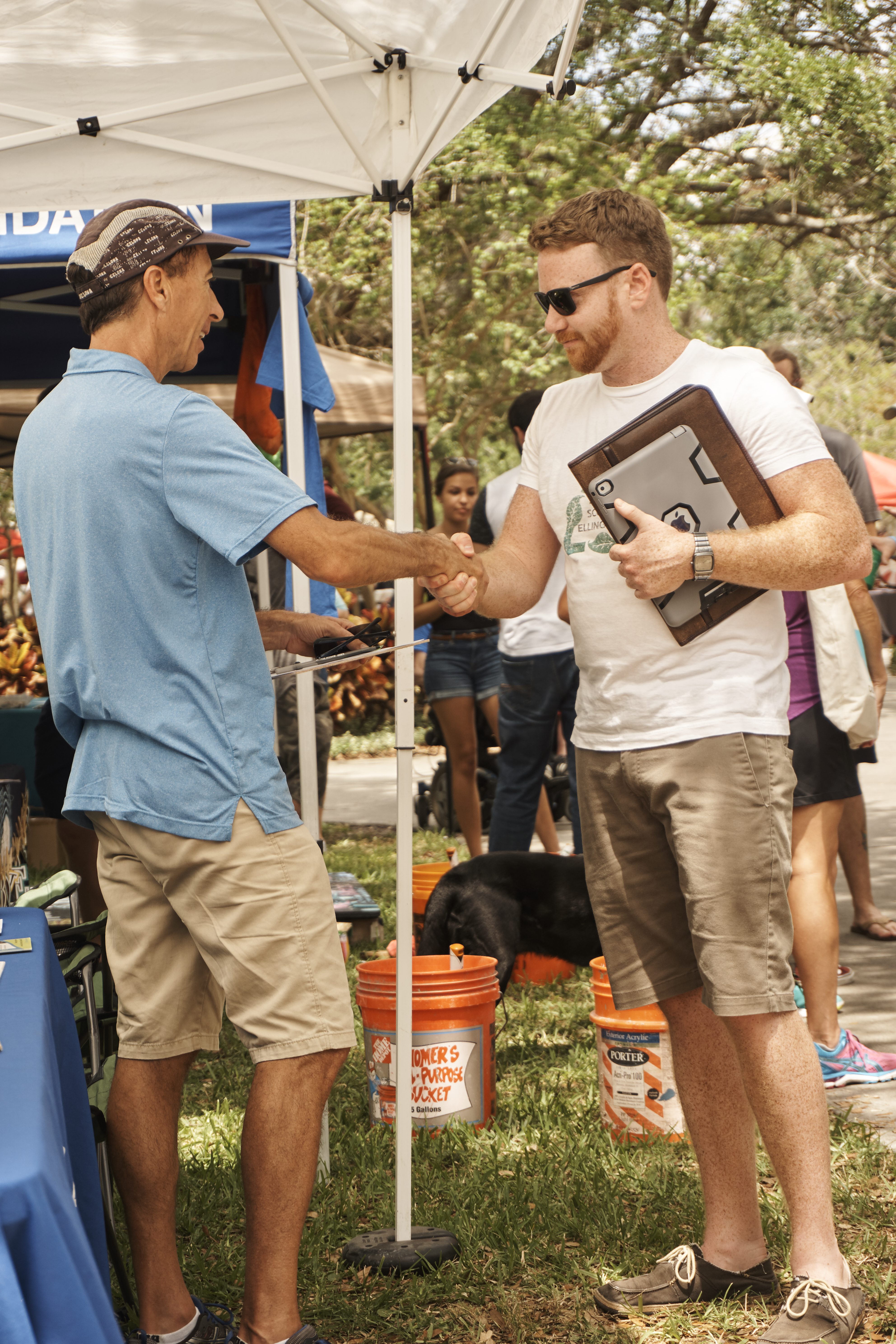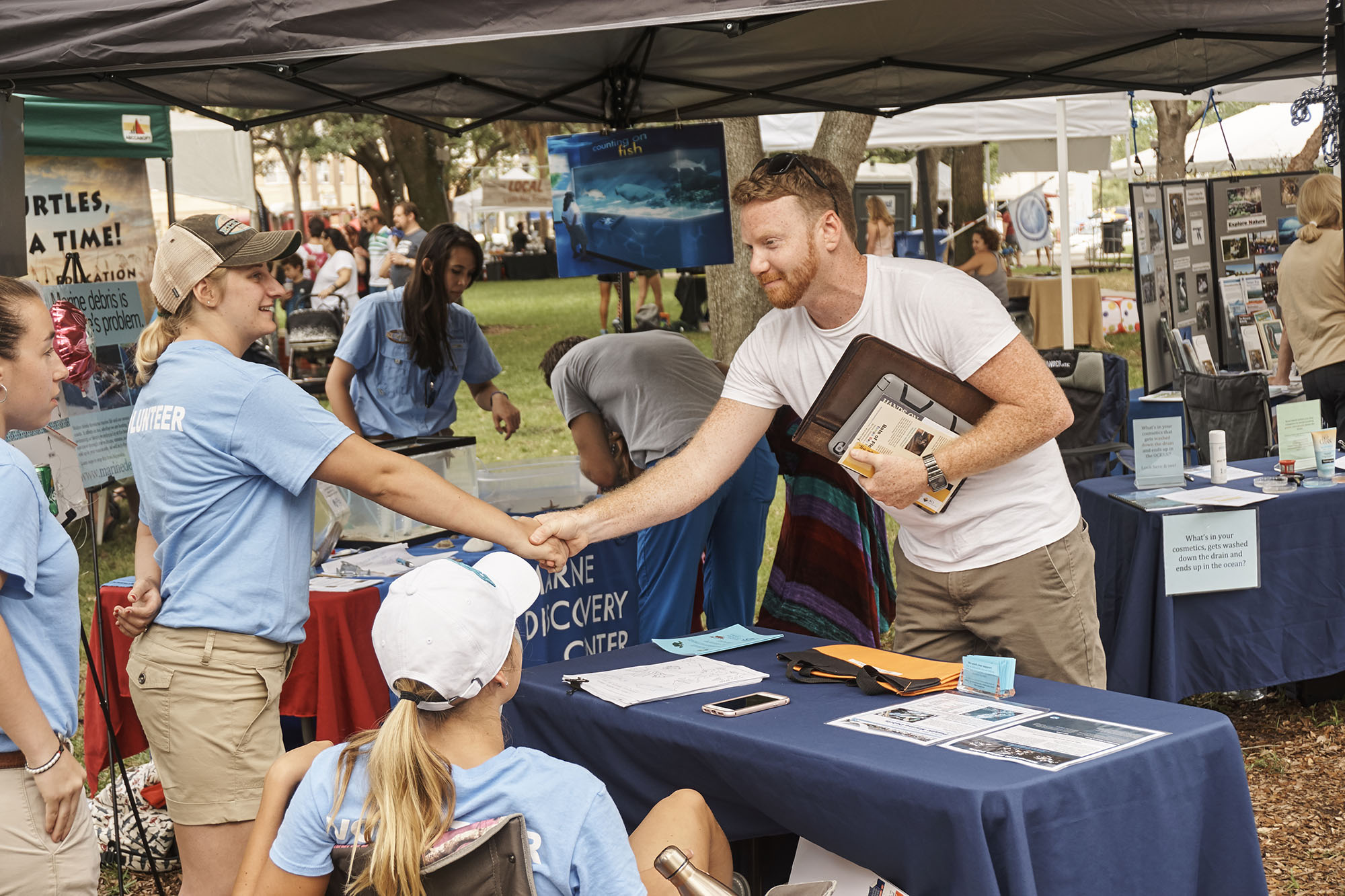In the crowd celebrating Earth Day and marching for science on Saturday was James Scott, who bounced from person to person asking what they want to see in local government.
“There’s a learning curve to really finding out what the public wants, but it’s worth it in the long run,” said Scott.
Scott, 29, announced his candidacy for the District 6 seat on the St. Petersburg City Council on April 18, expanding the list of candidates to eight.
Among the candidates for the district, which covers part of downtown and much of southeast St. Petersburg, is Corey Givens Jr., 25, a 2014 graduate of USF St. Petersburg.
Only residents of District 6 can vote in the Aug. 29 primary. The top two vote-getters will then run citywide in the Nov. 7 general election.

A resident of St. Petersburg since 2008 after moving from Daytona Beach, Scott is enrolled in the USFSP master’s program in Florida Studies. During his time at the university, he has held a number of positions in Student Government, where he said public opinion also guided his actions.
“In 2009 we did a really extensive survey of the campus and found students cared about communal areas and sustainability,” said Scott. “So then, when I ran for Student Government president in 2010, we secured funding to build the USC, the health clinic and got the green fee instituted.”
The former president says he takes pride in changes he helped make to the campus and how he interacted with the student body.
“Establishing the RHO was a game changer,” he said. “I transformed the campus culture from an adult environment to a traditional residential campus.”
Scott also served as chair of the appropriations committee during his time in Student Government. The committee, charged with reviewing the annual budget, failed to catch a $93,511 misallocation in the 2016-2017 budget.
“When the budget is made, a percent of it goes to the university as a sort of tax,” he said. “After the numbers were drafted, that tax was taken out twice and no one caught it.”
Scott said the mistake was an oversight by a number of student leaders and a product of internal funding issues in Student Government.
“We didn’t pay our committee chairs, so the expectation that I am to go through and fact-check every number? That’s a question students need to ask themselves when they ask themselves how the budget goes,” said Scott.
“If you want SG not to make mistakes when it comes to $100,000 amounts, well, you get what you pay for,” he said. “I accept responsibility, but looking forward, if students want mistakes like that not to happen again they should consider paying their chairs.”
Using the experience he gained in Student Government, he would approach the City Council position the same way, Scott said.
“I always knew I was going to get into real world politics. My experience on campus was training for implementing what people ask for,” he said. “I’m proud of what we instituted in my time there.”
After years shaping USF St. Petersburg, Scott said he would limit his interaction with the university’s government and policy.
“My influence on campus, I hope, will be quite limited moving forward. The campus needs its own leaders. I’m still going to be involved and stay tapped in because I care, but it’s important to let the next generation take over. I made a point to leave my mark on the USFSP campus and culture, and learn to be a public servant.”
Scott’s first major play in city politics was co-managing a renewable energy campaign last year, attempting to push St. Petersburg towards sustainable power.
“I worked with the Sierra Club on 100 percent St. Pete, getting the city to commit to clean energy,” he said. “We’re the Sunshine City in the Sunshine State; it only makes sense.”
Scott also helped found the St. Pete Sustainability Council, a resident-led group for environmental activism. After establishing it, however, Scott opted to move on to more regulation-oriented goals.
“I help set the group up, formalize it, and I moved on. I have more of a focus on the policy side of government,” said Scott. “My experience in the university taught me what I’m good at.”

The driving force behind Scott’s campaign is a goal to reduce St. Petersburg’s carbon footprint while simultaneously protecting it from natural disasters.
“Most of my work at the university focused on sustainability, balancing the environment with economic and social priorities,” said Scott. “Next to and alongside sustainability is resilience. A city can be sustainable, but when a hurricane comes through, without resilience it will all be gone.”
Creating a more resilient community would require an intensive examination of roads, sewage system and buildings, according to Scott. Completely transforming St. Petersburg would come at a hefty cost.
“The price tag is a little over $300 million. To put that in context, the city’s budget is about $500 million. We need to spend a majority of St. Pete’s budget on resilient infrastructure so every heavy rain isn’t a disaster,” said Scott.
Scott is also pushing for accessibility in local government so every resident can participate more easily.
“It’s hard to engage as a citizen, to know what’s on the council’s docket,” he said. “The agendas come about a day or two before meetings and are 80 pages thick. City Hall should start providing timely agendas and holding meetings when people aren’t at work.”
Scott predicts the election will be determined by influence and funding but is still hopeful his competition will bring the best to District 6’s seat.
“It’s going to be hard for the election to really be about ideas; right now it’s a lot about personality and who has the most money,” said Scott. “I hope the race is enriched by the number of candidates as opposed to watered down.”



